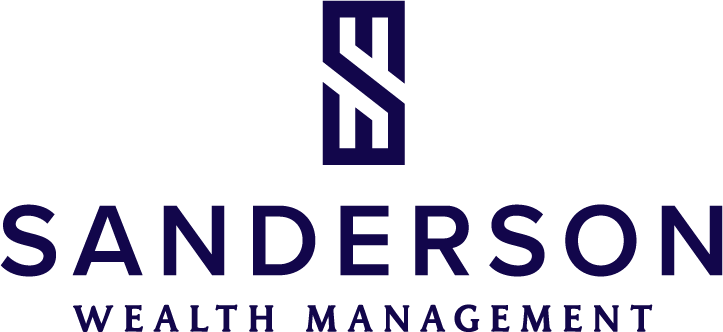From APR to ETF to TSR, there are so many acronyms that pertain to the financial industry that it can be difficult to keep track of what they all mean. One that you may see attached to some of Sanderson’s team members is CFA®, which stands for Chartered Financial Analyst®. Allow me to explain what it means and why it’s important to our clients.
The CFA designation is considered the premier designation in the investment management industry. It is given by the CFA Institute – a global non-profit organization of more than 150,000 investment professionals in over 165 countries.
Obtaining the CFA charter waives formal requirements by many regulators around the world due to its rigor. It is also recognized by many universities and allows for waivers and exemptions of certain programs, including the GMAT.
How to become a CFA Charterholder.
To earn the CFA designation, a financial professional must meet the education requirement equal to that of a Bachelor’s degree, pass three six-hour exams (two of three only offered annually, the other semiannually), possess four years of qualified industry work experience, become a regular member of the CFA Institute, and attest annually to adherence of the CFA Institute Code of Ethics and Standards of Professional Conduct.
The CFA exams are considered extremely challenging. According to the CFA Institute website, the average candidate spends about 320 hours preparing for each of the three levels. Pass rates over the years have averaged between 40 and 45% per level. From 1963-2019, over 1,780,000 candidates have attempted the Level I exam with only 268,000 moving on to pass the third and final level. I can tell you from personal experience, it’s tough!
Exam topics include ethics, investment tools, asset valuation, and portfolio management. Level I focuses on knowledge and comprehension, while Level II is more application and analysis based. The Level III exam focuses on the translation of information into evaluations and investment decisions.
Personal experience becoming a CFA Charterholder.
My journey to earning the CFA charter began in 2013 as an investment in myself, with the desire to advance my career and stand out in the ultra-competitive investment management industry. It ended up being so much more. A new job, new house, and getting married were all welcomed additions during the 1,500+ hours spent studying. I learned many lessons both personally and professionally about sacrifice, motivation, determination, and good ol’ grit.
I’m proud to say that I completed the program and earned the Chartered Financial Analyst® (CFA®) designation in August of 2019. I gratefully thank my wife, co-workers, family, and friends for the love and support.
What the CFA designation means to me and our clients.
To me, obtaining the CFA charter is proof that I am a true global professional committed to bettering the financial future of clients. It is the first step toward a lifelong journey of learning and making a difference in a transparent and ethical manner.
To my peers, it shows my expertise, integrity, ethics, and commitment to the profession we have chosen.
To my colleagues at Sanderson Wealth Management, it proves that determination and pursuit of excellence are of utmost importance to me. It also gives them the assurance that I have the skills and commitment to meet the needs of our clients.
And it means that honesty and transparency are at the forefront of my commitment to helping you achieve your financial and personal goals.
Finally, on a personal note, now, that my CFA studies are complete, please feel free to email me with Netflix series recommendations. I have a lot of catching up to do!
Disclosure
© 2019 Sanderson Wealth Management LLC. This information is not intended to be and should not be treated as legal, investment, accounting or tax advice and is for informational purposes only. Readers, including professionals, should under no circumstances rely upon this information as a substitute for their own research or for obtaining specific legal, accounting, or tax advice from their own counsel. All information discussed herein is current as of the date appearing in this material and is subject to change at any time without notice. Opinions expressed are those of the author, do not necessarily reflect the opinions of Sanderson Wealth Management, and are subject to change without notice. The information has been obtained from sources believed to be reliable, but its accuracy and interpretation are not guaranteed.
Let’s talk about your future.
Schedule a consultation to learn more about our investment services.
[gravityform id="3" title="false" description="false" ajax="true"]
Filter Blog Posts
SUBJECT
Estate & Generational Financial Planning
AUTHOR
Disclosure
This publication contains general information that is not suitable for everyone. All material presented is compiled from sources believed to be reliable. Accuracy, however, cannot be guaranteed. Further, the information contained herein should not be construed as personalized investment advice. There is no guarantee that the views and opinions expressed in this publication will come to pass. Past performance may not be indicative of future results. All investments contain risk and may lose value. © October 2019 JSG
Let’s talk about your future.
Schedule a consultation to learn more about our investment services.
Filter Blog Posts
SUBJECT
- Investment Consulting (160)
- Financial Planning (144)
- Tax Consulting (44)
- Estate & Generational Wealth Planning (15)
- Firm News (11)
- Lessons Earned (11)
- COVID-19: Market Watch (10)
- Community (4)
- Philanthropy (4)
- Business Succession Planning (3)
- Prosper Financial Wellness (3)
- Ukraine: Market Watch (1)
AUTHOR
- Angelo Goodenough
- C. Michael Bader, Esq., MBA, CPA, CIMA®
- Caleb Jennings, MBA, CFP®, CIMA®, AIF®
- Cameron Radziwon, LSSBB
- Debbie Todaro
- Evan Kraft, CFP®, CRPC®
- James Warner, MBA, CPA, CFP®, CIMA®
- Joe Bartelo, CPA
- John Gullo, MBA, CFA, CFP®, CIMA®
- John Sanderson, CPA, CIMA®
- Justin Sanderson, MBA, CFP®, CIMA®
- Karen Nicpon, CPA
- Phil Frattali, CFA
- Regyna Waterhouse
- Sanderson Wealth Management
- Tim Domino, CPA, CFP®
- Tucker Weppner, CFP®
